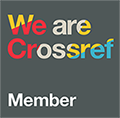Parents' Experiences of their Children with Learning Disabilities in the Process of Learning to Write
DOI:
https://doi.org/10.33308/26674874.2025392889Keywords:
Learning Disabilities, Parents, Qualitative Research, Writing SkillsAbstract
The aim of this study is to determine the experiences of parents in the process of learning to write for their children with learning disabilities. Criterion sampling method, one of the purposeful sampling methods, was used to form the participants of the research, which used a phenomenology design with a qualitative approach. Accordingly, ten parents who met the criteria were included as participants in the study. The data obtained through the semi-structured interview form developed by the researchers were analyzed by content analysis. As a result of the analysis, four themes were reached: the process of learning to write, the experiences of parents, supporting writing skills at home, and the difficulties experienced. As a result of the research, parents found the process of learning to write challenging for their children with learning disabilities and experienced various problems, children showed progress in writing skills thanks to supportive education services after diagnosis and they had some limitations in supporting writing skills at home.
Downloads
References
Agha Mohammad Hasani, P., Zeinaddiny Meymand, Z., Mokhtaree, M., & Arfaei, S. (2020). The role of homework in the formation of stress in elementary school students and their parents in Rafsanjan in 2018. Community Health Journal, 14(1), 50-59.
Amerikan Psikiyatri Birliği. (2022). Diagnostic and statistical manual of mental disorders. American Psychiatric Publishing.
Aracı, N. (2021). Yazma güçlüğü olan çocukların ailelerine öneriler. M.A. Melekoğlu & K. Öğülmüş (Ed.), Disgrafi-yazma güçlüğü: Tanılama ve müdahale (ss. 107-123). Eğiten Kitap.
Baynazoğlu, L. (2019). Sınıf öğretmenlerinin ev ödevleri hakkındaki görüşlerinin incelenmesi. Milli Eğitim Dergisi, 48(221), 51-71.
Berninger, V. W., Abbott, R. D., Augsburger, A., & Garcia, N. (2009). Comparison of pen and keyboard transcription modes in children with and without learning disabilities. Learning Disability Quarterly, 32(3), 123-141. DOI: https://doi.org/10.2307/27740364
Bıçakcı, A., & Çakıroğlu, O. (2023). Özel öğrenme güçlüğü tanılı çocuğu olan ailelerin görüşleri ve deneyimleri: Tanılama sürecinin keşfi. Uludağ Üniversitesi Eğitim Fakültesi Dergisi, 36(3), 786-817. DOI: https://doi.org/10.19171/uefad.1300417
Büyüköztürk, Ş., Çakmak, E. K., Akgün, Ö. E., Karadeniz, Ş., & Demirel, F. (2015). Bilimsel araştırma yöntemleri. Pegem Akademi.
Carotenuto, M., Messina, A., Monda, V., Precenzano, F., Iacono, D., Verrotti, A., et al. (2017). Maternal stress and coping strategies in developmental dyslexia: An Italian multicenter study. Frontiers in Psychiatry, 8, 295. DOI: https://doi.org/10.3389/fpsyt.2017.00295
Çayır, A., & Balcı, E. (2023). Öğrenme güçlüğü olan öğrencilerin yazma güçlüklerinin belirlenmesi. Uluslararası Türkçe Edebiyat Kültür Eğitim Dergisi, 12(4), 1822-1832. DOI: https://doi.org/10.7884/teke.1370860
Çelik, D., & Arslan Özer, D. (2022). Sınıf öğretmenlerinin yazma güçlüğü ile ilgili görüşleri. Ana Dili Eğitimi Dergisi, 10(3), 648-670. DOI: https://doi.org/10.16916/aded.1102590
Çiftçi, İ. H. (2018). Özgül öğrenme güçlüğü olan çocukların ailelerinin tanı öncesi ve sonrası yaşadıkları süreçlerin incelenmesi [Yayınlanmamış yüksek lisans tezi]. Yakın Doğu Üniversitesi.
Creswell, J. W. (2014). Research design: Qualitative, quantitative, and mixed methods approaches. SAGE Publications.
Darling-Hammond, L., Flook, L., Cook-Harvey, C., Barron, B., & Osher, D. (2020). Implications for educational practice of the science of learning and development. Applied Developmental Science, 24(2), 97-140. DOI: https://doi.org/10.1080/10888691.2018.1537791
Deniz, E., Hamarta, E., & Akdeniz, S. (2015). Öğrenme güçlüklerinin belirtileri. S. Yıldırım-Doğru (Ed.), Öğrenme güçlükleri içinde (ss.49-66). Eğiten Kitap.
Dilekçi, A. (2023). Türkçe derslerindeki ödevler hakkında öğrenci, öğretmen ve veli görüşleri. Ana Dili Eğitimi Dergisi, 11(3), 509-530. DOI: https://doi.org/10.16916/aded.1249383
DiStefano, M., O’Brien, B., Storozuk, A., Ramirez, G., & Maloney, E. A. (2020). Exploring math anxious parents’ emotional experience surrounding math homework-help. International Journal of Educational Research, 99, 101526. DOI: https://doi.org/10.1016/j.ijer.2019.101526
Doğan-Temur, Ö., & Korkmaz, N. (2021). Özel öğrenme güçlüğü olan çocukların matematik öğrenme sürecine ilişkin veli deneyimleri: Bir durum çalışması. Ankara Üniversitesi Eğitim Bilimleri Fakültesi Özel Eğitim Dergisi, 22(3), 591-609. DOI: https://doi.org/10.21565/ozelegitimdergisi.729195
Dumont, H., Trautwein, U., Nagy, G., & Nagengast, B. (2014). Quality of parental homework involvement: Predictors and reciprocal relations with academic functioning in the reading domain. Journal of Educational Psychology, 106, 144–161. DOI: https://doi.org/10.1037/a0034100
Eray, F., & Öpengin, E. (2023). Exploring the impact of special learning disability diagnosis on family dynamics: A parental perspective. International Journal of Educational Research Review, 8(4), 981-990. DOI: https://doi.org/10.24331/ijere.1344731
Fernandez-Kaltenbach, E. (2009). Parental involvement and the developmental stages of writing: knowledge and skills to assist children and parent perceptions on their experience [Theses and dissertations]. Pepperdine University.
Fuchs, D., Fuchs, L. S., Mathes, P. G., Lipsey, M. E., & Eaton, S. (2000). A meta-analysis of reading differences between underachievers with and without the learning disabilities label: A brief report. Learning Disabilities: A Multidisciplinary Journal, 10(1), 1-3.
Graham, S., & Harris, K. R. (2003). Students with learning disabilities and the process of writing: A meta-analysis of SRSD studies. In H. L. Swanson, K. R. Harris, & S. Graham (Eds.), Handbook of learning disabilities (pp. 323-344). Guilford Press.
Gül, H., Yürümez, E., Gül, A., Kılıç, H. T., & Günay-Ay, M. (2016). Öğretmenlerin özgül öğrenme güçlüğü ile ilgili bilgi düzeyleri ve damgalama: Çok merkezli bir çalışma. Ortadoğu Medical Journal/Ortadoğu Tıp Dergisi, 8(2), 76-82.
Heiman, T. (2002). Parents of children with disabilities: Resilience, coping, and future expectations. Journal of Developmental and Physical Disabilities, 14(2), 159e171. DOI: https://doi.org/10.1023/A:1015219514621
Henrique, M.R., & Madeira, M.L. (2017). Reading and writing: Learning difficulties, causes and intervention. Literacy Information and Computer Education Journal, 8(1), 2489-2496. DOI: https://doi.org/10.20533/licej.2040.2589.2017.0331
Holland, M., Courtney, M., Vergara, J., Mclntyre, D., Nix, S., Marion, A., & Shergill, G.. (2021). Homework and children in grades 3–6: Purpose, policy and non-academic impact. Child Youth Care Forum, 50, 631–651. DOI: https://doi.org/10.1007/s10566-021-09602-8
İlker, Ö., & Melekoğlu, M. A. (2017). İlköğretim döneminde özel öğrenme güçlüğü olan öğrencilerin yazma becerilerine ilişkin çalışmaların incelenmesi. Ankara Üniversitesi Eğitim Bilimleri Fakültesi Özel Eğitim Dergisi, 18(3), 443-469. DOI: https://doi.org/10.21565/ozelegitimdergisi.318602
Kadan, G. (2022). Öğrenme güçlüğünde aile ve duygusal süreçler. Uluslararası Erken Çocukluk Eğitimi Çalışmaları Dergisi, 7(1), 43-60.
Karande, S., & Kuril, S. (2011). Impact of parenting practices on parent–child relationships in children with specific learning disability. Journal of Postgraduate Medicine, 57(1), 20–30. DOI: https://doi.org/10.4103/0022-3859.75344
Karande, S., Kumbhare, N., Kulkarni, M., & Shah, N. (2009). Anxiety levels in mothers of children with specific learning disability. Journal of Postgraduate Medicine, 55(3), 165–170. DOI: https://doi.org/10.4103/0022-3859.57388
Karande, S., Mehta, V., & Kulkarni, M. (2007). Impact of an education program on parental knowledge of specific learning disability. Indian Journal of Medical Sciences, 61(7), 308e406. DOI: https://doi.org/10.4103/0019-5359.33189
Kayahan Yüksel, D., & Emmioğlu Sarıkaya, E. (2021). Mother’s participation in literacy education of children with special learning disability: A draft training program. E-International Journal of Educational Research, 12(5), 36-64. DOI: https://doi.org/10.19160/e-ijer.999351
Koç Akran, S. (2021). Ev ödeviyle ilgili makale ve tezlerin sistematik analizi. Anadolu Eğitim Liderliği ve Öğretim Dergisi, 9(1), 74-95.
Kurnaz, A. (2020). Öğrenmenin oluşumu, öğrenme güçlüğü ve türleri. A. Kurnaz & H. Sarı (Ed.), Öğrenme güçlüğü olan öğrenciler ve eğitimleri içinde (ss. 2-25). Pegem Akademi. DOI: https://doi.org/10.14527/9786257228848.01
Lagkada, M.A. (2019). Intervention program for the development of written expression in a high school student diagnosed with specific learning disorder. Open Journal of Social Sciences, 7, 38-50. DOI: https://doi.org/10.4236/jss.2019.711004
Lam, S.S.T., Au, R.K.C., Laung, H.W.H., & Li-Tsang, C.W.P. (2011). Chinese handwriting performance of primary school children with dyslexia. Research in Developmental Disabilities 32, 1745–1756. DOI: https://doi.org/10.1016/j.ridd.2011.03.001
Lincoln, Y. S., & Guba, E. G. (1985). Naturalistic inquiry. Sage. DOI: https://doi.org/10.1016/0147-1767(85)90062-8
McLaughlin, T.F., Weber, K.P., & Derby, K.M. (2013). Classroom spelling interventions for students with learning disabilities. In H.L. Swanson, K.R. Harris, & S. Graham (Ed.), Handbook of learning disabilities (pp. 416-422). The Guilford Press.
Melekoğlu, M. A., & Sak, U. (2017). Öğrenme güçlüğü ve özel yetenek. Pegem Akademi. DOI: https://doi.org/10.14527/9786053188049
Melekoğlu, M.A. (2021). Özel öğrenme güçlüğü ve yazma problemleri. M.A. Melekoğlu & K. Öğülmüş (Ed.), Disgrafi-yazma güçlüğü: Tanılama ve müdahale içinde (ss. 1-11). Eğiten Kitap.
Mercer, C. D., & Mercer, A. R. (2005). Teaching students with learning problems. Pearson Education.
Moustakas, C. (1994). Phenomenological research methods. Sage. DOI: https://doi.org/10.4135/9781412995658
Nistler, R., & Maiers, A. (2000). Stopping the silence: Hearing parents’ voices in urban first-grade family literacy program. The Reading Teacher, 53, 670-680.
Öğülmüş, K., Açıkgöz, M.H., & Okur, M. (2021). Özel öğrenme güçlüğü olan çocukların tanılanma sürecinin aile görüşlerine göre incelenmesi. Route Education and Social Science Journal, 64, 201-218. DOI: https://doi.org/10.17121/ressjournal.3013
Okur, M. (2020). Öğrenme güçlüğü çocuğu olan ailelere yönelik rehber kılavuz. A. Kurnaz & H. Sarı (Ed.), Öğrenme güçlüğü olan öğrenciler ve eğitimleri içinde (ss. 315-341). Pegem Akademi. DOI: https://doi.org/10.14527/9786257228848.15
Palas, A. Y., Avcı, G., & Sorakın, Y. (2021). Özel öğrenme güçlüğü (yazma güçlüğü) tanısı almış ortaokul- lise öğrencilerinde yazma kaygısının incelenmesi. Turkish Studies - Education, 16(3), 1609-1622. DOI: https://doi.org/10.47423/TurkishStudies.50804
Perry, N., Nordby, C., & VandeKamp, K. (2003). Promoting self-regulated reading and writing at home and school. The Elementary School Journal, 103, 317-337. DOI: https://doi.org/10.1086/499729
Pierangelo, R., & Giuliani, G. A. (2006). Learning disabilities: A practical approach to foundations, assessment, diagnosis, and teaching. Allyn & Bacon.
Routman, R. (2000). Conversations: Strategies for teaching, learning, and evaluating. Heinemann.
Saban, A., & Ersoy, A. (Ed.) (2017). Eğitimde nitel araştırma desenleri. Anı Yayınları.
Sahu, A., Bhargava, R., Sagar, R., & Mehta, M. (2018). Perception of families of children with specific learning disorder: An exploratory study. Indian Journal of Psychological Medicine, 40, 406-13. DOI: https://doi.org/10.4103/IJPSYM.IJPSYM_148_18
Tekin Ersan, D. (2015). Öğrenme güçlüklerinde yetişkin ve aile. S. Yıldırım-Doğru (Ed.), Öğrenme güçlükleri içinde (ss. 103-116). Eğiten Kitap.
Tercan, H., & Yıldız Bıçakçı, M. (2018). Özgül öğrenme güçlüğü olan çocukların annelerinin tanılama öncesi çocuklarının genel gelişim özelliklerine ilişkin görüşleri. The Journal of Academic Social Science Studies, 68, 581-591. DOI: https://doi.org/10.9761/JASSS7557
Undheim, A. M., & Sund, A.M. (2008). Psychosocial factors and reading difficulties: Students with reading difficulties drawn from a representative population sample. Scandinavian Journal of Psychology, 49(4), 377–384. DOI: https://doi.org/10.1111/j.1467-9450.2008.00661.x
Warren, E., & Young, J. (2002). Parent and school partnerships. Asia-Pacific Journal of Teacher Education, 30, 217-228. DOI: https://doi.org/10.1080/1359866022000048385
Yıldırım, A., & Şimşek, H. (2018). Sosyal bilimlerde nitel araştırma yöntemleri. Seçkin Yayıncılık.
Yılmaz Yenioğlu, B. (2021). Yazma güçlüğünde yazmanın mekanik boyutuna yönelik araştırma temelli müdahale yöntemleri ve stratejileri. M.A. Melekoğlu & K. Öğülmüş (Ed.), Disgrafi-yazma güçlüğü: Tanılama ve müdahale (ss. 130-149). Eğiten Kitap.
Downloads
Published
How to Cite
Issue
Section
License
Copyright (c) 2025 Tuğba Pürsün- Nihal Doğanay

This work is licensed under a Creative Commons Attribution-NonCommercial-NoDerivatives 4.0 International License.
I accept that the Owner of Journal of Education for Life, the Editor, Associate Editors, Reviewers and the Editorial Board cannot be hold responsible regarding the scope, the findings, the discussion and conclusion of the manuscript submitted.
I declare to the editorship of Journal of Education for Life that the manuscript is original and has not been published anywhere else or is not under evaluation process for any other journal.
I approve that I grant Journal of Education for Life as the sole and exclusive right and license to publish for the full legal term of copyright of my manuscript concurring with article 5846 / 22-23-25 while I retain copyright in the work.





